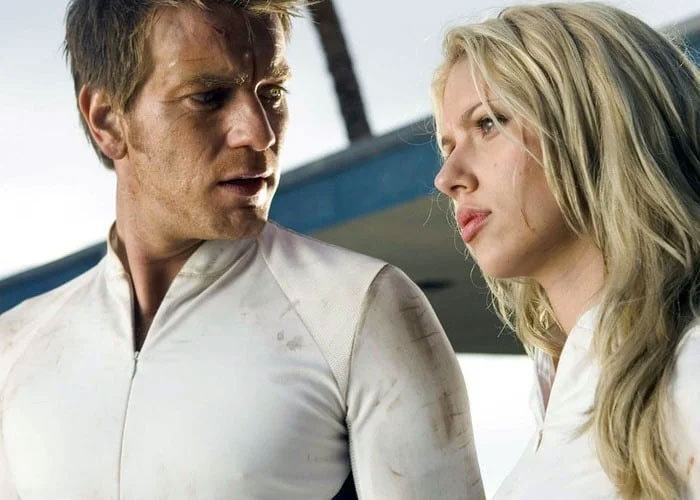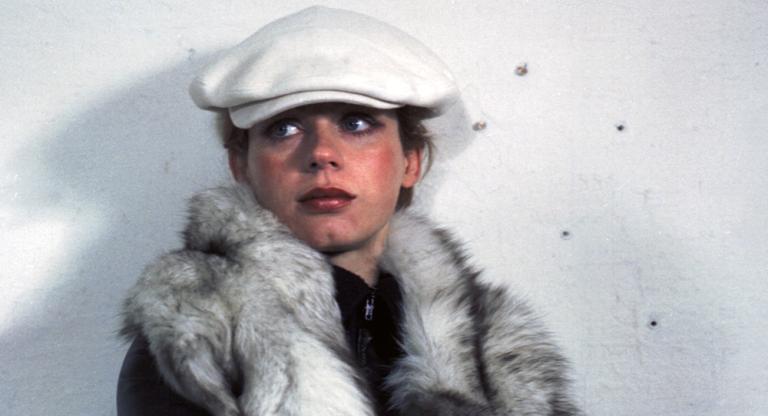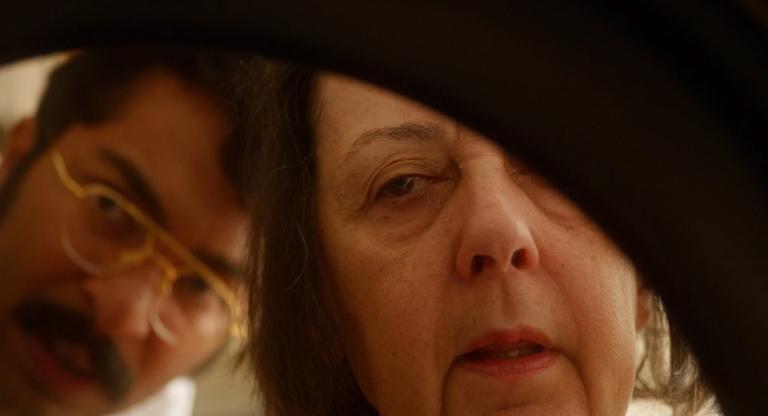Following up 2003’s unapologetically brash, career defining spectacle, Bad Boys II with a much more restrained, utopian sci-fi film is likely not what audiences, critics, or industry pundits expected from Michael Bay in 2005. The Island may not reach the R-rated excessive thrills of Bad Boys II’s increasingly wanton parade of urban slaughter, but it gives Bay a 120 million dollar budget to create a near future that is as sterile as it is brimming with opportune violence. A THX 1138 for the post-Y2K era, full of high speed chases, cutting edge special effects and Bay’s trademark sense of humor on full display.
The Island on its surface is a film about cloning, a topic that would be pervasive in sci-fi of the 2000s with films like The Sixth Day (2000), Replicant (2001) and the same year’s Æon Flux. But where Bay begins his 136-minute opus as something more akin to a political thriller, uncharacteristically saving any action for nearly the second act, he wisely functions the remainder of the film as one long chase, not dissimilar from his most recent film, Ambulance (2022). The narrative crux of The Island, at its most basic beats, is that Earth in the 21st Century is largely contaminated save for a titular safe space named The Island and each year there is a lottery for people to gain entry to its sought after environs. But The Island isn’t all it is cracked up to be, and upon discovering its sinister truths, Ewan McGregor and Scarlett Johansson’s characters make a daring escape, abandoning their usual days of meandering in shockingly clean white robes, sipping cocktails out of absurdly long-stemmed future glassware and VR fighting for trodding through the dangerous environment outside with targets planted firmly on their backs.
What’s most immediately apparent when watching The Island two decades later is just how good it looks. This is arguably Bay’s best looking film, outside of maybe Transformers: Dark of the Moon (2011) but, unlike that film, has the added benefit of Bay holding shots for much longer than normal both during and removed from action sequences. The aesthetic is nearly constantly changing, moving from the clinical whites of the early scenes to washed out earthy environments following their escape to harsh blues of the more immediately tense sci-fi moments, like a patient waking up during a surgery sequence. It simultaneously sees Bay at both his most visually restrained and adventurous, looking wholly unlike anything else he has made yet not possibly the product of anyone else.
All of this said, if The Island seems like the forgotten Bay film, it’s because it is. For a filmmaker that’s consistently been a sure bet at the box office, it’s the only film of his that didn’t earn a profit in theatrical, save for Ambulance, which was released amidst a global pandemic and also had a third of The Island’s budget. But it may very well be his most eccentric film, even more so than the straight comedy of Pain & Gain (2013), as it sees bay toying with genre conventions in ways that he hadn’t done so prior, all the while structuring a narrative around what is ultimately one long chase scene that starts 45 minutes into the film. Dreamworks was rather notoriously sued by, and ultimately settled with, the director of the exceedingly similar 1979 sci-fi film Parts: The Clonus Horror but, while they irrefutably share narrative beats, they exist as two sides of the same coin. One is a tense slice of 70s genre filmmaking on the cheap and the other is a gloriously expensive action movie from a major studio. You could almost say that The Island is, itself, a clone.



